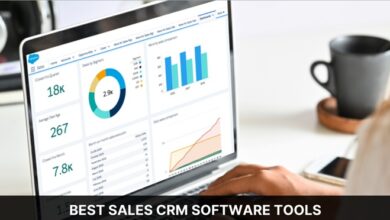Trends in Romanian IT Industry

Romania has emerged as a thriving IT hub in Eastern Europe, attracting numerous tech companies and software developers. It’s a flourishing tech location that has attracted such well-known giants as Google, Amazon, Microsoft, Adobe, and others. One more advantage of the Romanian IT industry is its favorable business environment: ranked 47th among 177 countries in terms of economic freedom, it’s moderately free when it comes to setting up a business.
Furthermore, Romanian taxation for software developers and tech companies tops the list of the most business-friendly tax systems in Europe. That’s why it’s trendy to become a developer, especially given the IT tax exemption in Romania, which makes it even better for foreign companies to enter this market — there’s no shortage of skilled programmers.
However, to navigate these trends successfully, it’s important to know the nuances of Romanian taxation. This way, you’ll be able to decide whether or not it’s a lucrative location for your company. Alcor is a trusted IT recruitment provider with 10+ years of experience in hiring in Eastern Europe. In this article, they will share local insights on Romanian taxes.
Taxes in Romania for Tech Businesses
Tech companies in Romania generally follow the standard taxation process. After establishing an IMM (Întreprinderilor Mici și Mijlocii), there are two tax options based on the company’s revenue and the presence of full-time employees.
- Micro-Company Tax: If the company’s revenue does not exceed the equivalent of $544072.60 (500,000 euros) and it has at least one full-time employee, the income tax rate is 1%. This option is beneficial for small tech companies.
- Corporate Income Tax (CIT): Companies with a profit greater than $544072.60 (500,000 euros) or no active full-time employees must pay a corporate income tax of 16%. This option applies to larger tech companies.
In addition to CIT or micro-company tax, IT companies in Romania are also required to pay an additional contribution of 2.25% for every employee as a labor insurance contribution.
Romanian Taxes for Software Developers
Software developers in Romania have two main options for collaboration: employment contracts (CIM) or B2B contracts (SRL/PFA). Each option has its own tax implications. Let’s take a more detailed look!
Employment Contract
Under an employment contract (Contractul individual de muncă), a software developer is hired as an employee, and both the employer and employee contribute to social security. The employee’s social contributions consist of a 25% social insurance contribution and a 10% social health insurance contribution. Additionally, the employee pays a 10% income tax on their salary.
There are certain tax exemptions available for IT sector employees who choose the employment contract model. When specific criteria outlined in Romanian law No 1168/2017 are met, such as holding a relevant title and diploma, working in a specialized IT department, and generating income exclusively from software development activities, the employee is eligible for a 10% tax exemption. The employer must also meet certain requirements, such as generating a yearly income of at least $10881.45 (10,000 euros) per tax-exempted employee within the IT department.
B2B Contracts
In the case of a B2B agreement, a foreign tech company can collaborate with a Romanian developer through a contract according to the Civil Code. The developer can register as an SRL (Societate cu Răspundere Limitată) or a PFA (Personă Fizică Autorizată).
- SRL (Limited Liability Company): If the income does not exceed $544072.60 (500,000 euros) and the company has at least one full-time employee, the income can be taxed at 1%. If the income exceeds this amount or the company has no full-time employees, the income is taxed at 16% CIT.
- PFA (Authorized Physical Person): The income tax rate for PFA is 10%. Additionally, the developer is responsible for paying pension and health contributions based on the minimum income thresholds.
It’s important to note that the choice between employment contracts and B2B contracts may depend on factors such as the developer’s preferences, income level, and administrative requirements.
Which Tax Structure Is Most Cost-Effective?
When considering the most cost-effective tax structure for software developers in Romania, it’s essential to analyze the nuances of each collaboration option.
Software developers under employment contracts tend to have a more secure employment relationship, with social security contributions and income taxes shared between the employer and the employee. Junior programmers mostly prefer this type of contract.
However, developers who choose B2B agreements often experience higher net incomes due to the ability to negotiate gross remuneration that includes taxes. Middle and senior professionals opt for B2B agreements, as this allows them to have more control over their tax liabilities and potentially save a significant amount of money.
Conclusion
The trend of Romanian tax exemption is one you shouldn’t miss. Hopefully, thanks to this article, you’ve gained more knowledge on how to navigate the Romanian taxation system. After all, your understanding of the various tax options, exemptions, and the most cost-effective tax structures is essential for making informed decisions.
Whether choosing an employment contract or a B2B agreement, it’s important to assess the specific requirements, benefits, and tax implications of each option. If you’re unsure of dealing with all of this alone, consider turning to a reliable local service provider.
For example, Alcor can manage IT recruitment in Poland, Romania, and Bulgaria for you. Not only can they hire a team of expert Romanian developers, but also consult you on accounting & legal matters, as well as manage taxes and payroll, plus assist you regarding contract law. They guarantee high-quality recruitment and transparent back-office services.



